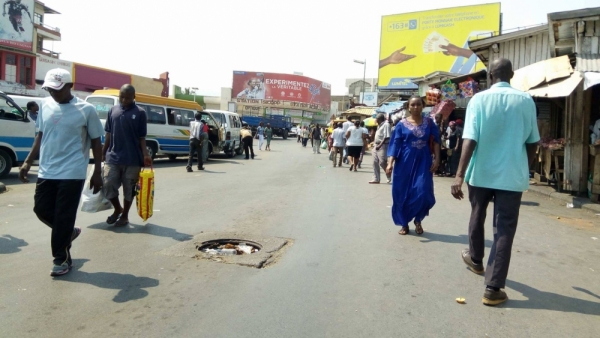In April of 2015, Burundian President Pierre Nkurunziza announced his intention to seek a third term. Weeks later, violations such as excessive use of force, disappearances, and arbitrary detention by security services started to surge. More than two years later, these violations still continue.
In the past few years, Burundi has been in a state of unrest marked by extrajudicial killings, a failed coup, and ethnic division. According to human rights workers, about 1,200 people have lost their lives since the start of the crisis. Though the level of violence has decreased, there still continues to be sporadic killings for which the police can often be to blame.
There have been continuous reports of disappearances in Burundi. But dead bodies are also being discovered. Chair of the commission of enquiry, Fatsah Ouguergouz, stated, “The modus operandi seems to be the same: the victims have their arms tied behind their backs and sometimes their bodies are weighed down with stones to make them sink once they are thrown into the river”.
The report gives first-hand accounts of residents whose loved ones have gone missing. The stories are unfortunately all the same. A loved one goes missing, and they are never to be heard from again.
Many refugees have spoken to investigators about the torture sessions carried out by the National Intelligence Service, as well as by the police. The commission also noted that many of those in exile include journalists, leaders of opposition parties, and more.
Along with the disappearances, humanitarian crises are continuing to emerge. Roughly 2.56 million people in Burundi are in a state of severe food insecurity. About three million Burundians require humanitarian assistance. The latest Integrated Food Security Phase Classification (IPC) bulletin attributes the crisis to “inflation, shortage of jobs, the depreciation of the Burundian franc and a shortage of foreign currency, aggravated by a malaria epidemic and the displacement of populations”. The market prices are currently 30 to 50 percent higher than the same period last year, according to IPC.
The Burundian economy continues to be in a state of depression. Budgetary aid suspensions imposed by the European Union (EU) in 2016 are having a serious impact on Burundi’s economy, according to analyst and anti-corruption activist Faustin Ndikumana. He stated, “The European Union had been funding about half of Burundi’s annual budget”. Ndikumana also mentioned that the lack of foreign currency led to shortages of fuel, medicines, and other essential goods.
Fuel shortages and electricity cuts have finally started to ease, but they have also increased food inflation. According to the national statistics institute, food prices increase more than 10 percent in less than a month. This has had severe implications for jobs and livelihoods, as many retailers have seen their sales falls drastically.
A government-led meeting amongst 26,000 citizens produced a report asserting that the population backed various constitutional changes and putting an end to presidential term limits. Opposition parties have dismissed the process and the establishment of a constitutional review commission. The UN Assistant Secretary-General Tayé-Brook Zerihoun has told the Security Council that implementing the report’s recommendations would likely escalate the crisis.
To read more, visit:
http://www.irinnews.org/analysis/2017/06/22/neglected-not-over-burundi-crisis-continues-bite







